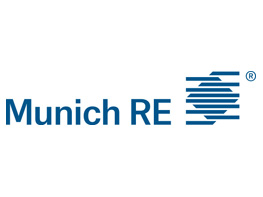Why Aren’t California’s Workers’ Comp Payers Being Held to the Same Standard as Its Providers?
Every game needs rules and an impartial referee to enforce them.
But when the rules seemingly only apply to one team, it’s not long before that team packs up and calls it quits.
Such is the situation in which California doctors who treat injured workers find themselves.
In California workers’ comp, there are well-defined billing and payment laws and regulations. Providers must bill according to strict standards and complex rules, while payers must remit reimbursement and EORs (explanations of review) according to strict timelines and in accordance with applicable fee schedules.
The problem? Only one set of rules is consistently enforced.
The consequence of provider non-compliance is simple, swift and automatic: The provider isn’t paid, the claims administrator is released from any obligation to reimburse, and the provider forfeits the reimbursement owed.
But when insurers, self-insured employers or TPAs violate California payment laws and regulations, the onus is on the provider to initiate an often lengthy, burdensome and resource-consuming appeals process — with no guarantee of correct payment.
Moreover, demonstrable patterns of blatant non-compliance by payers, even on a large scale, are rarely if ever meaningfully addressed by the state. Our e-billing firm, daisyBill, has submitted reams of data to the California Division of Workers’ Compensation, detailing consistent non-compliance with payment requirements by claims administrators, only to witness the non-compliance continue, sometimes for years.
Our experience suggests that the only effective deterrent for payer non-compliance is bad press rather than any fear of regulatory enforcement.
This compliance double standard is not only unjust and unfair; it is detrimental to the health of injured workers.
Anyone who’s ever been hurt at work knows how difficult it can be to access quality, timely care — especially in California, where an only nominally regulated medical provider network (MPN) system makes it nearly impossible to determine with any certainty which providers are eligible to treat a given injured worker.
California’s failure to enforce payment laws and regulations makes treating injured workers an even more dubious financial proposition, driving good providers from the system and further limiting injured workers’ options.
In the current regulatory environment, every injured worker is a financial roll of the dice for a practice.
Providers often simply accept the risk of taking on workers’ comp patients at a loss, knowing that improper payment denials and adjustments are likely to reduce revenue to below sustainable rates.
From denials of payment due to unverifiable MPN non-participation, to dubious downcoding, to out-of-control and arguably illegal preferred provider network discount-sharing among nebulous alliances of network entities, there are too many threats to revenue to keep up with, let alone seek legal redress for.
The appeals process to dispute incorrect payment is also weighed heavily in payers’ favor.
Second Review appeals submitted to payers are denied as “duplicate bills.” When providers pay $180 to request IBR (independent bill review) from the state, payers give the state demonstrably, blatantly untrue denial reasons — often completely different reasons from those initially given for the denial — seemingly designed to disqualify the dispute for IBR.
In many cases, we’ve seen payers suddenly reverse payment denial decisions only after the provider requested IBR, a laborious process for which the provider must submit a $180 fee, refundable only if the provider prevails.
This begs the obvious question: Are payers simply denying payment reflexively, knowing that many providers lack the resources and guidance to navigate the appeals process over and over, fighting tooth and nail over each bill?
From our vantage point, as informed by the millions of bills submitted through daisyBill, it’s hard not to suspect as much.
We rarely see any of the payer misbehavior described above meaningfully addressed, let alone deterred. Even when the state sides with the provider in IBR cases, (which occurs the vast majority of the time) payers routinely fail to reimburse the provider the $180 IBR filing fee, or any of the mandated penalty and interest payments.
In fact, state regulations identify penalty and interest payments as “self-executing” — in other words, California trusts payers to punish themselves, on the honor system, when deemed to have acted improperly. The results are predictable.
California workers’ comp providers operate in a cloud of uncertainty; uncertain whether they’ll be retroactively deemed ineligible to treat a patient to whom services were already rendered, uncertain whether payment will be denied for any number of illegitimate reasons, uncertain if payment will be anywhere near fee schedule rates once the networks have taken their sizable bites.
The failure of California to keep payers honest exacerbates this uncertainty beyond sustainable levels.
Injured workers are not — and cannot be — served by a system in which billing providers are held to one standard of compliance while payers are held to another. &








